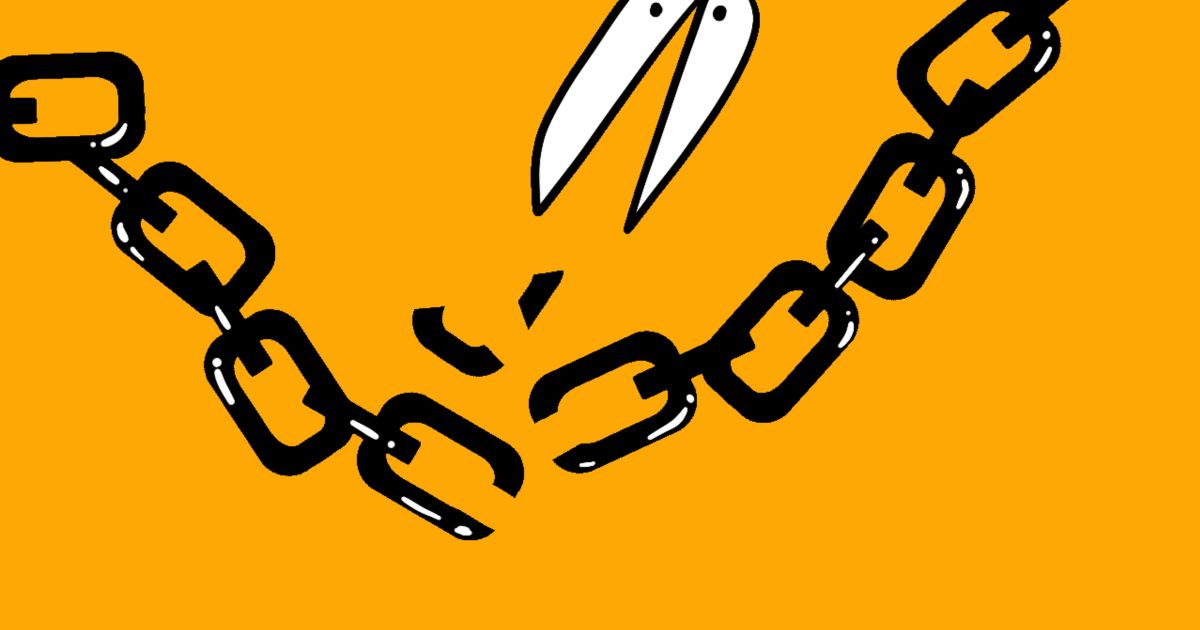

Finance
What Happens When Your Insurance Cancels
Published: November 23, 2023
Discover what happens to your finances when your insurance policy cancels. Protect yourself and your assets by understanding the implications and taking proactive measures for financial security.
(Many of the links in this article redirect to a specific reviewed product. Your purchase of these products through affiliate links helps to generate commission for LiveWell, at no extra cost. Learn more)
Table of Contents
Introduction
Insurance plays a crucial role in protecting individuals, families, and businesses from unforeseen events and financial risks. It provides peace of mind by offering coverage for things like accidents, illnesses, property damage, and liability claims. However, there are instances when insurance policies get cancelled, leaving policyholders in a vulnerable position.
In this article, we will delve into the topic of insurance cancellation, exploring what it means, the common reasons behind it, and the consequences that policyholders may face. Furthermore, we will provide guidance on how to handle insurance cancellation and what steps to take after it occurs.
Understanding insurance cancellation is essential for anyone who has an insurance policy or is considering purchasing one. Knowing the potential pitfalls and consequences can help individuals make informed decisions about their coverage and take appropriate action when faced with cancellation.
So, let’s dive in and explore the world of insurance cancellation, the reasons behind it, and how to navigate this challenging situation.
Understanding Insurance Cancellation
Insurance cancellation refers to the termination of an insurance policy before its original end date. This termination can be initiated by either the insurance company or the policyholder. When a policy gets cancelled, the coverage and benefits provided by the insurance policy cease to exist.
Insurance companies may cancel policies for various reasons, such as non-payment of premiums, misrepresentation of information during the application process, or even changes in the policyholder’s risk profile. On the other hand, policyholders may choose to cancel their insurance policies if they find better coverage options or no longer need the specific type of insurance.
It is essential to distinguish between cancellation and non-renewal. Non-renewal occurs when an insurance company chooses not to renew a policy at the end of its term. In this case, the policyholder is notified in advance, allowing them time to seek alternative coverage. Cancellation, however, terminates the policy before its original end date.
Insurance cancellation can have significant implications for policyholders. It may result in gaps in coverage, leaving individuals unprotected in the event of an unforeseen incident. Additionally, cancelled policies can have an impact on a person’s insurance history, making it more difficult or expensive to obtain coverage in the future.
It is important for policyholders to understand the terms and conditions of their insurance policies, including the circumstances under which cancellation may occur. By familiarizing themselves with the policy provisions, individuals can better prepare for potential cancellation and take appropriate steps to mitigate the impact.
Common Reasons for Insurance Cancellation
Insurance companies cancel policies for a variety of reasons. Understanding these common reasons can help policyholders avoid cancellation and ensure that they maintain continuous coverage for their needs. Here are some of the most common reasons for insurance cancellation:
- Non-Payment of Premiums: One of the main reasons insurance companies cancel policies is non-payment of premiums. If a policyholder fails to pay their premiums on time, the insurance company may terminate the policy. It is crucial to prioritize premium payments and ensure that they are paid by the due date to avoid cancellation.
- Misrepresentation of Information: When applying for an insurance policy, it is essential to provide accurate and truthful information. If a policyholder fails to disclose relevant information or provides misleading details, the insurance company may cancel the policy. It is crucial to be transparent during the application process to avoid cancellation due to misrepresentation.
- High-Risk Behavior: Insurance companies assess risk when underwriting policies. If a policyholder engages in high-risk behavior, such as reckless driving, participating in dangerous hobbies, or running a high-risk business, the insurance company may cancel the policy due to increased risk exposure. It is important to understand the impact of high-risk activities on insurance coverage and take necessary precautions to avoid cancellation.
- Fraudulent Claims: Insurance fraud is a serious offense, and insurance companies take it very seriously. If a policyholder submits fraudulent claims or engages in fraudulent activities related to their policy, the insurance company will likely cancel the policy. It is crucial to act in good faith and provide accurate information when filing claims to avoid cancellation due to fraudulent activities.
- Policy Lapses: Insurance policies require continuous coverage, and any lapses in coverage can lead to cancellation. If a policyholder allows their coverage to lapse, even for a short period, the insurance company may cancel the policy. It is important to maintain consistent coverage and renew policies before they expire to prevent cancellation.
These are just a few common reasons for insurance cancellation. It is important to carefully read and understand the terms and conditions of your insurance policy to ensure compliance and avoid cancellation.
Consequences of Insurance Cancellation
Insurance cancellation can have significant consequences for policyholders. Understanding these potential consequences is crucial in order to take appropriate action and mitigate any negative impact. Here are some of the potential consequences of insurance cancellation:
- Loss of Coverage: The most immediate consequence of insurance cancellation is the loss of coverage. Without insurance, policyholders are left vulnerable to financial risks associated with accidents, illnesses, property damage, liability claims, and more. It is important to have alternative coverage in place or find a new insurance policy as soon as possible.
- Exposure to Financial Risk: When insurance coverage is cancelled, policyholders must bear the financial burden of any unforeseen events or incidents. This includes expenses for medical treatments, property repairs, legal fees, and other costs that may arise. It is crucial to assess the potential financial risks and losses associated with the cancelled coverage and plan accordingly.
- Difficulty in Obtaining New Coverage: Insurance cancellation can make it challenging to obtain new coverage in the future. Insurance companies consider a person’s insurance history, including any cancellations, when underwriting policies. A cancelled policy can be seen as an increased risk, making it more difficult to find suitable coverage or resulting in higher premiums. It is important to address the reasons for cancellation and take steps to improve the insurance history to ensure better prospects for future coverage.
- Potential Legal Consequences: In some cases, insurance cancellation can have legal implications. For example, if a policyholder is involved in an accident or is sued for liability after the cancellation of their insurance policy, they may face legal consequences and be held personally liable for any damages or losses. It is crucial to consult with legal professionals to understand the potential legal ramifications of insurance cancellation in specific situations.
- Impact on Insurance Score: Insurance companies use insurance scores to assess the risk profile of potential policyholders. These scores take into account factors such as claims history, credit history, and insurance cancellations. A cancelled insurance policy can negatively impact one’s insurance score, making it harder to secure favorable rates and coverage in the future. It is important to take steps to improve the insurance score, such as maintaining consistent coverage and proactively addressing any issues that may lead to cancellation.
These consequences highlight the importance of addressing insurance cancellation promptly and effectively. By seeking alternative coverage, assessing financial risks, and taking steps to improve the insurance history, policyholders can minimize the negative effects of insurance cancellation and ensure long-term financial protection.
How to Handle Insurance Cancellation
Dealing with insurance cancellation can be a challenging and stressful situation. However, by taking proactive steps, policyholders can navigate through this process more effectively. Here are some essential tips on how to handle insurance cancellation:
- Contact Your Insurance Company: As soon as you are notified of the cancellation, reach out to your insurance company to understand the reason behind it. Discuss any potential options or alternatives that may be available to you. Sometimes, misunderstandings or errors can be resolved through open communication with the insurer.
- Review Policy Terms and Conditions: Carefully review the terms and conditions of your insurance policy to ensure that the cancellation is justified as per the contract. If there are any discrepancies or grounds for dispute, consider seeking legal advice or consulting with an insurance professional to explore your options.
- Address the Reason for Cancellation: If the insurance cancellation is due to specific factors that can be corrected, take prompt action to rectify the issue. For example, if non-payment of premiums was the cause, make the necessary payment and provide proof to the insurance company. By addressing the root cause, you may be able to reinstate or negotiate the cancellation.
- Consider Appeals or Complaints: If you believe that the cancellation was unfair or unjust, you may have the option to appeal the decision or lodge a complaint with the appropriate regulatory bodies. Check your local laws and regulations to understand the process and criteria for appealing a cancellation. Be prepared to provide supporting evidence and documentation to support your case.
- Seek Alternative Coverage: While dealing with the cancellation, it is crucial to ensure that you maintain continuous coverage. Research and compare alternative insurance options to find suitable coverage that meets your needs. This may involve seeking quotes from different insurance providers or working with an insurance broker to explore available options.
- Notify Relevant Parties: If the cancelled insurance policy covered any assets or liabilities, such as a home or business, it is important to notify relevant third parties. This may include mortgage lenders, landlords, or clients who require proof of insurance. Keep them informed about the cancellation and provide documentation as necessary.
Handling insurance cancellation requires proactive communication, understanding policy terms, and taking prompt action. By following these steps, policyholders can navigate through the process more effectively and ensure that their insurance needs are adequately addressed.
Steps to Take After Insurance Cancellation
Experiencing insurance cancellation can be unsettling, but it is important to stay proactive and take appropriate steps to protect yourself and your assets. Here are some key steps to take after insurance cancellation:
- Evaluate Your Insurance Needs: Assess your insurance needs to determine the type and level of coverage required. Consider factors such as your personal circumstances, assets, and potential risks. This will help you identify the essential areas where new coverage is needed.
- Research Insurance Providers: Conduct thorough research to identify reputable insurance providers that offer the type of coverage you require. Compare quotes, policy features, and customer reviews to select a reliable and trustworthy insurer that meets your needs and budget.
- Gather Required Documentation: Collect any necessary documentation that may be required for the new insurance application process. This may include previous insurance policy details, claims history, and personal identification documents. Having these documents readily available will help expedite the application process.
- Seek Professional Assistance: If you find the process overwhelming or need guidance, consider working with an insurance broker or agent. They can provide expert advice, help you navigate through different policy options, and assist with the application process. Their knowledge and experience can be invaluable in finding suitable coverage.
- Secure New Insurance Coverage: Once you have selected an insurance provider, complete the application process promptly. Provide accurate and honest information to ensure a smooth application process. Be thorough in reviewing the terms and conditions of the new policy to ensure that it meets your specific needs.
- Notify Relevant Parties: Inform any parties that were previously listed or affected by the cancelled insurance policy about the change. This may include mortgage lenders, landlords, or other entities that require proof of insurance. Provide them with the new policy details to ensure compliance.
- Review and Update Other Policies: Take the opportunity to review and update any other insurance policies you may have, such as auto insurance, property insurance, or liability insurance. Ensure that you have adequate coverage in all areas to protect yourself from potential risks.
- Consider Bundling Policies: If applicable, explore the option of bundling multiple insurance policies with the same provider. Bundling can often result in cost savings and simplified administration. However, weigh the benefits and costs before making a decision.
By following these steps, you can navigate through the process of securing new insurance coverage after cancellation. Remember to choose coverage that adequately meets your needs and provides the necessary protection for your assets and liabilities.
Finding New Insurance Coverage
After experiencing insurance cancellation, finding new insurance coverage is crucial to protect yourself, your assets, and your financial well-being. Here are some steps to help you find new insurance coverage:
- Research and Compare: Begin by researching different insurance providers that offer the coverage you need. Look for reputable companies with good customer reviews and financial stability. Compare the policies, coverage options, and pricing from multiple insurers to find the best fit for your needs.
- Seek Recommendations: Ask friends, family members, and trusted advisors for recommendations on insurance providers. They can provide valuable insights based on their own experiences and help steer you towards reputable companies.
- Consider Specialized Providers: Depending on your specific insurance needs, you may need to seek insurance from specialized providers. For example, if you operate a niche business, you may require insurance coverage tailored to your industry or profession. Explore options for specialized coverage and ensure that the provider has expertise in your field.
- Work with an Insurance Broker: If you find the process of finding new insurance overwhelming, consider working with an insurance broker. Insurance brokers are knowledgeable professionals who can help assess your needs, shop around for the best coverage options, and provide expert advice tailored to your situation.
- Evaluate Coverage Options: Carefully evaluate the coverage options offered by different insurance providers. Consider the specific risks you want to protect yourself against and choose policies that provide adequate coverage in those areas. Pay attention to policy limits, deductibles, and exclusions to ensure that you have the necessary protection.
- Review Policy Details: Read and understand the terms and conditions of the insurance policies you are considering. Pay close attention to any exclusions, limitations, or specific requirements. It is important to have a clear understanding of what is covered and what is not to avoid any surprises in the event of a claim.
- Consider Customer Service and Claims Process: Customer service and claims handling are important factors to consider when choosing an insurance provider. Look for companies with a reputation for responsive and efficient claims processing, as this can significantly impact your experience in the event of an insurance claim.
- Get Multiple Quotes: Request quotes from multiple insurance providers to compare pricing and coverage options. Make sure to provide accurate information to obtain accurate quotes. Be sure to ask about any available discounts that may help reduce your premiums.
- Review and Update Regularly: Once you have secured new insurance coverage, regularly review your policies to ensure they continue to meet your needs. As your circumstances change, consider updating your coverage to reflect any new risks or assets that require protection.
By following these steps and conducting thorough research, you can find new insurance coverage that provides the necessary protection for you and your assets. Remember to regularly review and reassess your coverage to ensure it aligns with your evolving needs.
Conclusion
Insurance cancellation can be a challenging and unsettling experience, but by understanding the reasons behind it and knowing how to handle the situation, you can navigate through it effectively. It is crucial to take proactive steps to protect yourself and your assets, ensuring that you maintain continuous coverage and mitigate any potential risks.
In this article, we have explored the concept of insurance cancellation, its common reasons, and the consequences that policyholders may face. We have provided guidance on how to handle insurance cancellation, including steps to take after it occurs and finding new insurance coverage that meets your needs.
When faced with insurance cancellation, it is important to maintain open communication with your insurance company, review policy terms, and address any underlying issues. Seeking alternative coverage from reputable insurance providers, taking necessary precautions, and regularly reviewing and updating your policies are essential for safeguarding yourself against potential risks.
Remember, insurance is a crucial tool for protecting your financial well-being and providing peace of mind. By staying informed, proactive, and prepared, you can navigate through insurance cancellation with confidence, ensuring that you have the necessary coverage to face life’s uncertainties.
While this article provides general guidance, it is essential to consult with insurance professionals, such as brokers or agents, to fully understand your specific situation and obtain personalized advice. By doing so, you can make informed decisions and secure the insurance coverage that best suits your needs.














